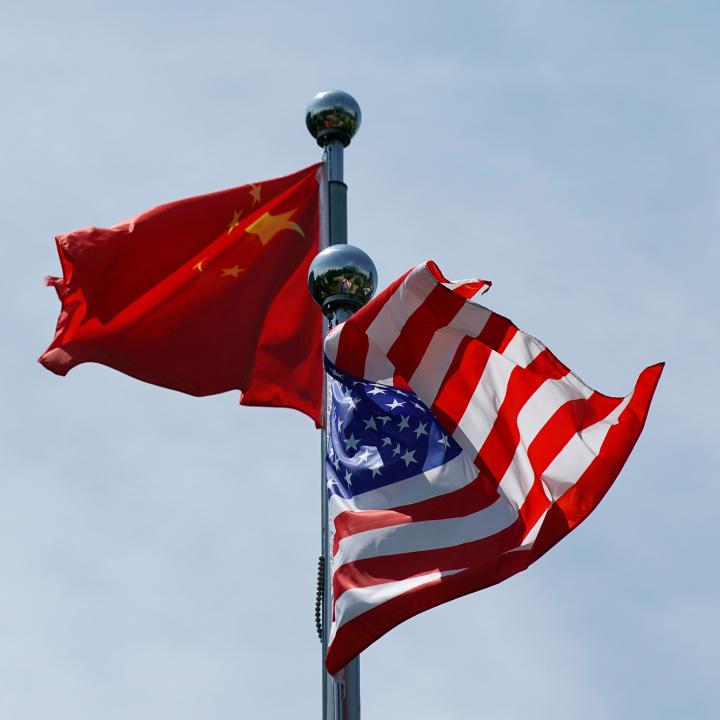
- Policy Analysis
- Articles & Op-Eds
China and the United States in the Middle East: Between Dependency and Rivalry

Washington's current regional posture of heavy presence but strategic diffidence offers China the best of both worlds—a continued American security umbrella over countries increasingly interested in diversifying their great power relationships.
The following is an abstract of a chapter from the June 2021 book The Great Power Competition, Volume 1. To read the full chapter, visit the publisher’s website.
While China is becoming more active in the Middle East economically, diplomatically, and militarily, its policies in the region are often difficult for Western policymakers to predict or understand. Beijing views the Middle East through three lenses—its direct interests in the region, Xi Jinping’s signature Belt and Road Initiative, and U.S.-China relations—and its policies are the result of the complex interplay of the three. China’s strategy emphasizes maximizing economic benefits and minimizing commitments in the region, while incrementally seeking to make strategic gains, bolster China’s regional and global profile, and challenge American predominance. The future of China’s policy depends not just on these factors, however, but on the approach the United States chooses to take toward Beijing overall, as well as on the unanswered question of what Middle East strategy Washington will pursue to complement its broader strategy of great power competition. The current U.S. posture of heavy presence but strategic diffidence in the region offers China the best of both worlds—a continued American security umbrella over a region increasingly interested in diversifying its great power relationships.



